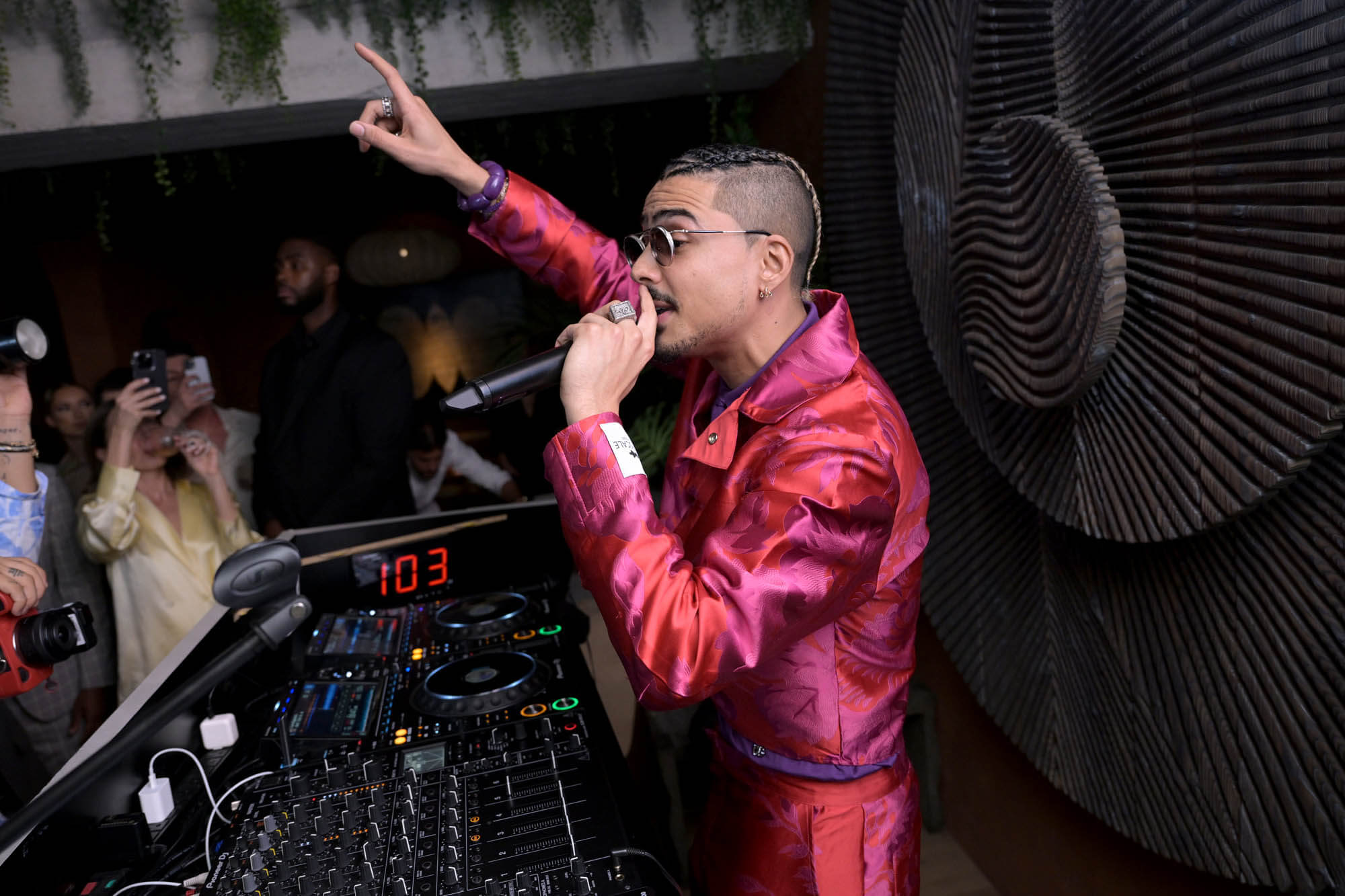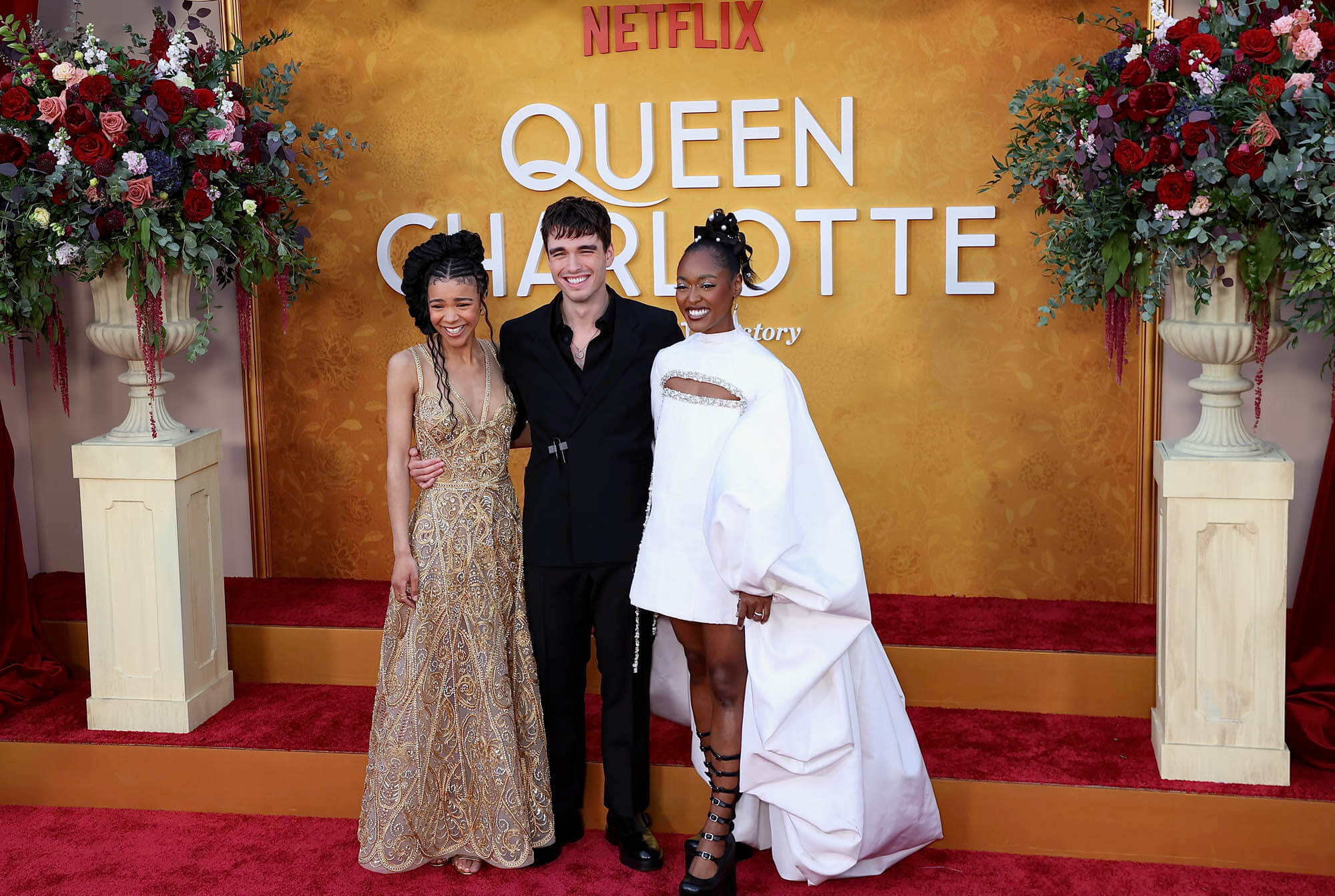Quincy Brown keeps it in the family



Diddy’s adopted son, Quincy Brown, is opening up about what it was like growing up with the hip hop legend.
In conversation with PEOPLE, Quincy spoke about a new Paramount+ show he’s narrating called Family Legacy. It’s centred around the lives of the famous kids of stars like Melissa Etheridge, Notorious B.I.G., Sammy Hagar from Van Halen, Brandy, the late Chester Bennington and more. In addition to being the show’s narrator, Quincy and his brothers, Christian and Justin, are also in the show.
"I think I've been a sponge, and now I do so much," he told the outlet. "One of my passions, I'm very much into the art of acting, and then there's music. But just seeing how he's able to handle and juggle all these things, I took that from him as my most major takeaway."
At 31, Quincy has had success in acting, music and modelling stints. Currently, he owns a production company, a watch line, a jean collection, a startup tech company and he even launched a picture editing app called Fresh Crop. The hustle may not be genetic, but it certainly is contagious. Or is it?
With all the chatter of nepo babies in recent months, Quincy’s success could be a result of hard work. Or, it could just be the result of being in such close parameters to Diddy and his network – which include the likes of Jay-Z, Usher, Mary J. Blige and so many others. But have we discussed what nepotism looks like in Black families, specifically? And whether it leads to the same success we see from white kids born to white celebrities?
Lainey touched on the element of race in the discussion about nepo babies in this thoughtful piece about Lori Harvey here, but it really is a never-ending conversation because there’s so much nuance to it. Her point about Black kids born to Black celebrities still having to deal with roadblocks that white nepo babies don’t really rings true here.
In some of his ventures, the nepotism is obvious. Acting, modelling and music opportunities were likely readily available for him given the connections that Diddy and his mother, the late Kim Porter, who had a successful career in modelling, had. Even developing his line of jeans just reeks of Diddy’s involvement and mentorship, considering he was the mastermind behind Sean John, a men’s fashion brand he founded in 1998, sold, and ultimately bought back in 2021 for $7.5 million. But the fact that he got into the tech startup space and app development suggests he’s after much more than what’s readily available to him by virtue of being Diddy’s son.
Being Black in the tech space is not easy. One man chronicled his experience in the Harvard Business Review. I’d argue that being a Black nepo baby in the tech space might even work against you, adding a layer of difficulty due to the racism within the industry. All of this supports Lainey’s point about race still being an obstacle for some nepo babies.
Just like his dad did, Quincy also has his sights set on bringing in new talent to the music and acting scenes. And he’s keeping it all in the family, starting with his 16-year-old twin sisters D’Lila Star and Jessie James, who are featured in the music video for his latest hit.
"We don't need no contracts, no paper, but I'm my sisters' manager," he told PEOPLE. "I'm like, the uncle- dad-manager-protector, I'm claiming it. I want to be able to really guide them. I want them to really know the layers of everything you can do. They've expressed to me their passions, where they see themselves, so I'm kind of bringing them along on my ride a little bit because in a minute, it's going to springboard into their own journey."
Though I’m a huge proponent for paperwork and legally binding contracts in the event things go south – and things have definitely gone south before, even with family – I love the fact that he’s starting with his sisters, even if it is nepotistic. Why? Because nepotism does not function the same in Black families in the same way it does for white families for a swath of reasons.
The first is that there are a lot less famous Black families than there are white ones. So the opportunities to help generate wealth and success are already much fewer and further between. Second, as Lainey discussed, when you’re Black, there are still obstacles no matter who your parents or relatives are – so being taken under the wing of someone who looks like you and genuinely has your best interests at heart is an added bonus. And lastly, Quincy is keeping the generational wealth going. There’s no doubt that Diddy’s future generations – remember, he’s got seven kids – will be set for life, but Quincy is likely to expand and usher in other Black talent into the entertainment industry, giving those artists and actors a real chance at fame, success, and the wealth that comes with it.
It's amazing to see what can happen when Black people – whether everyday people or the famous kids of hip hop moguls – can do when they have access to the same opportunities that are often reserved for white people – or people who just don’t look like us. I can’t wait to see what this new generation of talent will do.

